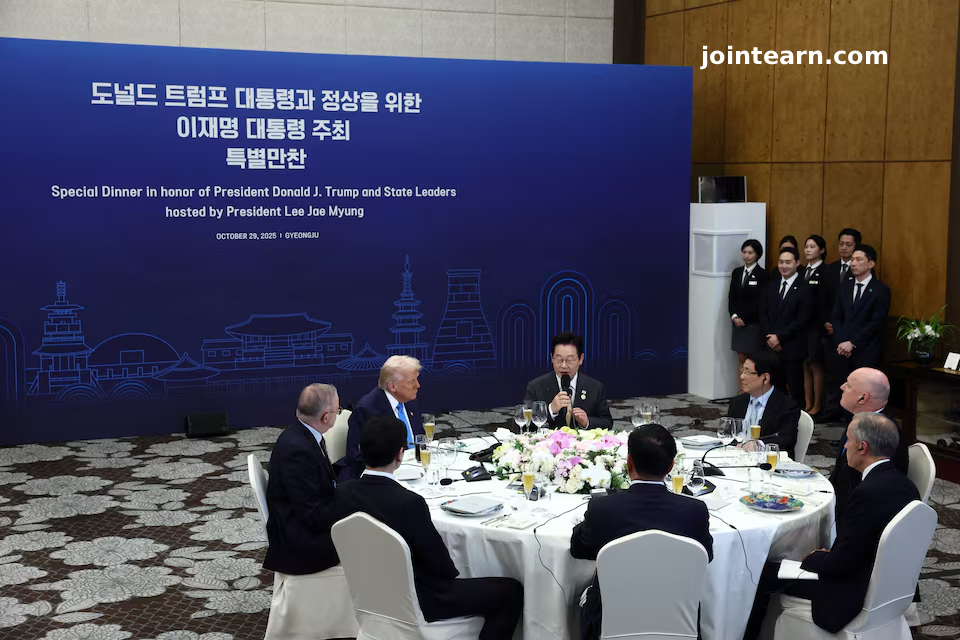
Gyeongju, South Korea, October 29, 2025 – U.S. President Donald Trump announced on Wednesday that the United States has reached a new trade deal with South Korea, a development that immediately strengthened the South Korean won against the U.S. dollar. The agreement aims to reduce economic uncertainty for South Korea, a nation heavily dependent on international trade.
Speaking ahead of a dinner hosted by South Korean President Lee Jae Myung, Trump confirmed the agreement, stating, “We did, we did. We did reach a deal.” While he did not provide detailed terms, the president emphasized that the deal was “pretty much finalized,” signaling a breakthrough in negotiations that have been ongoing for months.
Impact on South Korean Economy and Currency
Following the announcement, the South Korean won rose by 0.54% against the U.S. dollar, reflecting investor optimism about reduced trade tensions. Without the agreement, South Korean manufacturers of cars and steel faced U.S. tariffs of 25%, compared to the 15% tariff agreed in July, putting them at a disadvantage relative to Japanese competitors, who benefit from a similar U.S.-Japan trade deal.
South Korean officials noted that while progress has been made, differences remain, particularly regarding the cash component of a $350-billion investment package. Seoul has been pushing to reduce cash contributions in favor of increasing loans and loan guarantees, highlighting ongoing negotiation complexities.
Context: Trump’s Asia Tour
The Trump-Lee summit took place during President Trump’s three-nation Asia tour, which began in Malaysia with meetings at the Association of Southeast Asian Nations (ASEAN) summit. The tour reflects the administration’s continued focus on strengthening U.S.-Asia trade relations and securing favorable agreements for American businesses, particularly in manufacturing and technology sectors.
Experts say the deal could provide a much-needed boost to the South Korean export-driven economy, improving market confidence and potentially encouraging new investment from both U.S. and international companies. Analysts also note that the agreement helps maintain competitiveness against other Asian economies, especially Japan and China, in key industrial sectors such as automobiles, steel, and semiconductors.
Broader Implications for U.S.-South Korea Relations
Beyond economic considerations, the deal underscores the strategic partnership between the United States and South Korea, reinforcing cooperation on trade, investment, and regional security. Both countries have emphasized that continued collaboration will support mutual economic growth, enhance supply chain resilience, and strengthen ties in the Indo-Pacific region.
While details remain limited, market watchers expect further announcements in the coming weeks regarding the specific terms of tariffs, investments, and regulatory measures under the agreement. The outcome of these negotiations will likely shape U.S.-South Korea economic relations for years to come.


Leave a Reply